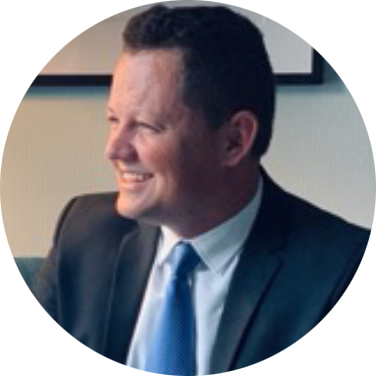Advanced Scenario
Planning

COURSE OVERVIEW
Advanced Scenario Planning is a course designed to refine and expand the strategic foresight skills of professionals by focusing on the development, analysis, and application of complex scenario planning techniques. Building on the core courses of strategic foresight, trend analysis, and ethical considerations, this course dives deeper into creating nuanced scenarios that anticipate a wide range of future possibilities. Participants will learn to craft detailed, multi-faceted scenarios that challenge conventional thinking, apply critical thinking to assess potential impacts and responses and integrate these scenarios into strategic planning and decision-making processes. Through a combination of theoretical knowledge, practical exercises, and case study analyses, this course aims to enable leaders in government and business to navigate uncertainty with greater confidence and agility, ultimately leading to more resilient and adaptive strategies for future challenges. Designed for those with a solid foundation in foresight and strategic planning, it is ideal for senior professionals looking to elevate their expertise in shaping and guiding their organisations towards sustainable futures.
Facilitator

Senior Lecturer, Dubai Future Academy
Dr. Marius Oosthuizen is a futurist, academic, consultant and facilitator. With dual Masters degrees in strategic foresight and social and political ethics, as well as a PhD in leadership, Dr. Oosthuizen helps executives in government, business and civil society build future-ready institutions.
He holds the position of director, scenarios at the World Energy Council (WEC) and director for learning at the School of International Futures (SOIF), both in London. As an adjunct faculty member of the Gordon Institute of Business Science (GIBS) he teaches the annual Mastering Strategic Foresight elective on the executive MBA. He is Senior Faculty with the Dubai Future Academy, at the Dubai Future Foundation.
As a speaker Dr. Oosthuizen has the unique ability to blend political and economic analysis, with social and cultural nuances at both local and international level.
Pre-requisites:
Attendees should have ideally attended the prior courses, or have at least some experience with scanning.
Delivery Format:
Physical
Language:
English
Date:
TBC
Time:
9:00 AM – 4:00 PM
Location:
3D Printed Office, Emirates Towers, Dubai, UAE
Target Audience:
Mid-career professionals in government or business
Fees:
AED 8,500AED 5,500
Per Participant
COURSE OUTLINE
Introduction to scenario planning
- What is scenario planning?
- Scenarios planning theories and approaches
- The scenarios development process
- Briefing: Live Client, applied case
- Framing and focal question development
- Scoping a Scenario planning process
- Engagement Scanning frameworks and contextual analysis
- Syndicate engagement – Scenario planning application phase 1
- Examining systems dynamics of drivers of change
- Scenario logics (critical uncertainties, 2×2 and levers for change)
- Scenarios architypes
Scenario Planning in Organisational Strategy and Planning Contexts
- The Art of Storytelling – Scenario Narratives
- Syndicate engagement – Scenario planning application phase 2
- Windtunneling & Portfolio Analysis (Scenarios implications)
- Live Client presentation and feedback
- Imbedding scenario planning in policy & strategy processes
Learning Objectives and outcomes
Learning Objectives
- Advanced Scenario Planning Acumen: Ability to develop and employ advanced scenario planning techniques, integrating both qualitative and quantitative foresight methods. This includes creating sophisticated, multi-faceted scenarios that take into account a wide array of variables and potential outcomes to inform strategic decision-making.
- Systems Thinking Expertise: Proficiency in understanding and applying systems thinking to complex problems in the public sector. This involves recognising interdependencies, anticipating consequences of interventions, and employing holistic approaches to address systemic challenges.
- Strategic Foresight Integration in Strategy and Policy Making: Demonstrated capability to integrate strategic foresight into public policy and business strategy development and implementation. This includes engaging with stakeholders effectively, communicating foresight insights clearly, and facilitating participatory foresight exercises to create inclusive and sustainable policies.
Learning outcomes
- Advanced Scenario Development Skills: Participants will master the art of constructing advanced scenarios, learning to weave intricate narratives that account for a wide array of variables and uncertainties. This includes developing multi-layered scenarios that incorporate diverse perspectives and potential futures, enabling them to explore and prepare for complex, uncertain environments.
- Strategic Integration of Scenario Planning: Students will gain expertise in integrating scenario planning into strategic decision-making processes, ensuring that scenarios are not just theoretical exercises but are actively used to inform and guide strategic choices. They will learn how to align scenario planning with organisational goals and strategies, adapting and evolving these as new information and insights are gained.
- Facilitation and Communication of Scenario Planning Outcomes: The course will enhance participants’ abilities to effectively facilitate scenario planning workshops and communicate complex scenarios and their implications to diverse audiences, including stakeholders and decision-makers. Students will learn techniques for engaging participants in scenario development, ensuring inclusivity and capturing a broad range of insights.
AGENDA
Participant will be awarded a certificate upon completion.
For any support and inquiries, please contact: [email protected]